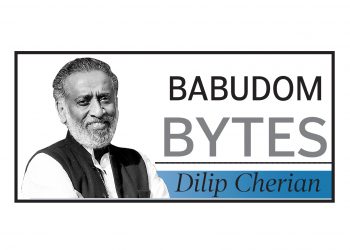The Central Secretariat Service (CSS) may not be the face of government, but it’s certainly its nervous system. And right now, it’s showing signs of paralysis. For years, the CSS Forum has been knocking on doors asking for what basic administrative hygiene should ideally be: timely cadre reviews, fair promotions, and parity with other central services. However, the 4th cadre review, due back in 2018, remains stuck in bureaucratic molasses, despite a committee being formed nearly two years ago.
What we have is a seven-year delay in what should’ve been a routine five-yearly exercise. Promotions are in deep freeze. Under Secretaries eligible after five years are stuck for over twelve. ASOs of the 2014 batch haven’t seen a single promotion. Sounds like systemic apathy.
And this isn’t just about morale. Ministries and departments are running with a massive shortfall—RTI replies suggest a demand for 2,500 more CSS officers across just 24 departments. This has real-world consequences on governance, efficiency, and public service delivery. What adds salt to the wound is that other services get their cadre reviews wrapped up in under a year. Is CSS being singled out for indifference, these babus are questioning?
Prime Minister Narendra Modi’s vision of an efficient, responsive government needs fuel. Digital India cannot be built with analogue HR processes. The DoPT, ironically responsible for personnel policy, has to ensure that CSS officers are regarded with the same respect as other members of the civil service. After all, CSS isn’t asking for privilege, just parity. It is time to listen and act before the machinery grinds to a halt.
Vice President out, staff out faster
Vice President Jagdeep Dhankhar’s sudden resignation may have been draped in health concerns, but it’s the quiet aftershocks that raise the real eyebrows.
Even before the press had digested his exit, members of his secretariat staff, including officers on deputation, were reportedly being sent scurrying back to their parent cadres. No transition time, no soft landings. For a constitutional office of this stature, such haste isn’t just unseemly, it’s telling.
When a high constitutional functionary steps down mid-term, the system usually pauses, allows dignity to prevail, and ensures an orderly handover. But not this time. The signal was stark: not only was the man out, so were his people. And fast.
This kind of administrative muscle-flexing suggests that Dhankhar’s exit wasn’t as voluntary as the official line suggests. Add to that the deafening silence from the ruling establishment, and you’ve got all the elements of a classic quiet purge. Babudom, as always, speaks volumes through its paperwork, and the papers this time seem to have been moved in vengeance mode.
Dhankhar’s recent stances, which were occasionally at odds with the government’s line, may not have gone down well with the powers that be. But it’s the treatment of his staff that betrays just how personal this got. We’ve seen this play before. Only now, the eraser seems to work faster.
When babus get candid on podcasts
Move over celebrity exposés—now even babus are turning podcasters. A wave of state-run or insider-led podcasts features police officers and babus sharing stories that were once confi ned to office corridors.
Uttar Pradesh Police’s “Beyond the Badge” is a glossy narrative of Rs 100-crore insurance fraud cases and UPSC toppers, delivered by cops themselves. It’s storytelling in uniform, complete with technical forensic details and aspirational journeys. Haryana’s HSNCB chief recently launched a series unpacking drug enforcement operations, from pharmacy abuse to interstate smuggling chains.
Public interest? Check. Transparency? Partially. But with babus as narrators, it’s as much about recounting crime as it is about image crafting. The message: here’s the modern, woke babudom speaking in person, dropping jargon and drama in equal measure.
This trend taps into India’s podcast culture explosion, where brands and public figures are discovering podcasts as a celebrity-greenlighting machine. The entry of babus into this arena is especially curious. While it humanises mumbo-jumbo bureaucratic processes, it also shows them chasing ‘coolness’ and narrative control.
But not everyone’s buying it. Redditors and aspirants have long questioned whether civil servants, expected to be faceless public functionaries, should become social media influencers in khaki. When babus begin broadcasting, polishing their persona, or subtly flexing their status, the reaction has ranged from eyerolls to outright skepticism. If babus are looking for credibility, the real test isn’t in telling tales. It is in doing the real work transparently.
By Dilip Cherian






































